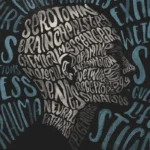Cognitive Behavioural Therapy (CBT) is a form of psychotherapy that focuses on identifying and changing negative thought patterns and behaviors. It is a structured, short-term treatment that has been shown to be effective in treating a variety of mental health conditions, including depression, anxiety, and PTSD.
CBT is based on the idea that our thoughts, feelings, and behaviors are interconnected. Negative thoughts can lead to negative emotions, which can in turn lead to negative behaviors. CBT works by helping individuals identify and challenge these negative thoughts and beliefs, which can then lead to more positive emotions and behaviors.
What’s the first step?
The first step in CBT is typically an assessment, during which the therapist will gather information about the individual’s thoughts, feelings, and behaviors. This information is used to develop a treatment plan tailored to the individual’s specific needs.
CBT typically involves weekly sessions with a therapist, during which the individual learns specific skills and strategies for managing negative thoughts and emotions. These may include techniques such as cognitive restructuring (challenging negative thoughts and beliefs), relaxation techniques, and behavioral experiments (testing the validity of negative beliefs).
CBT is often structured as a short-term treatment, typically lasting between 12 and 20 sessions. However, the length of treatment may vary depending on the individual’s needs and progress.
How can CBT help me?
One of the strengths of CBT is its focus on providing individuals with practical, actionable strategies for managing their mental health. CBT empowers individuals to take an active role in their treatment and provides them with tools they can use outside of therapy to manage their symptoms.
It has been shown to be effective in treating a variety of mental health conditions, including depression, anxiety, PTSD, and OCD. It has also been shown to be effective in treating substance use disorders and eating disorders.
While CBT is generally considered to be a safe and effective treatment, it may not be appropriate for everyone. It is important to speak with a mental health professional to determine whether CBT is the right choice for you.
In conclusion, (CBT) is a structured, short-term treatment that focuses on identifying and changing negative thought patterns and behaviours. It is an effective treatment for a variety of mental health conditions and provides individuals with practical, actionable strategies for managing their mental health. If you are struggling with mental health issues, speaking with a mental health professional about whether CBT is right for you may be a good first step towards recovery.
What can CBT be used to treat?
Cognitive Behavioural Therapy (CBT) is a versatile form of psychotherapy that can be used to treat a wide range of mental health conditions. Some of the most common conditions that CBT is used to treat include:
- Depression: CBT can be an effective treatment for depression by helping individuals to identify and challenge negative thought patterns and develop more positive thinking patterns.
- Anxiety: CBT is a common treatment for anxiety disorders, including generalized anxiety disorder, social anxiety disorder, and panic disorder. CBT can help individuals learn strategies for managing their anxiety and reduce their symptoms.
- Post-traumatic stress disorder (PTSD): CBT can be an effective treatment for PTSD by helping individuals to process traumatic experiences and develop coping strategies for managing PTSD symptoms.
- Obsessive-compulsive disorder (OCD): CBT can be an effective treatment for OCD by helping individuals to identify and challenge obsessive thoughts and compulsive behaviors.
- Eating disorders: CBT can be an effective treatment for eating disorders such as anorexia, bulimia, and binge eating disorder by helping individuals to identify and challenge negative thoughts and behaviors related to food and body image.
- Substance use disorders: CBT can be an effective treatment for substance use disorders by helping individuals to identify and challenge negative thoughts and behaviors related to substance use and develop coping strategies for managing cravings and triggers.
In addition to these conditions, CBT can also be used to treat a variety of other mental health conditions, including bipolar disorder, borderline personality disorder, and schizophrenia. Overall, CBT is a versatile and effective form of psychotherapy that can be adapted to meet the unique needs of individuals with a wide range of mental health conditions.





